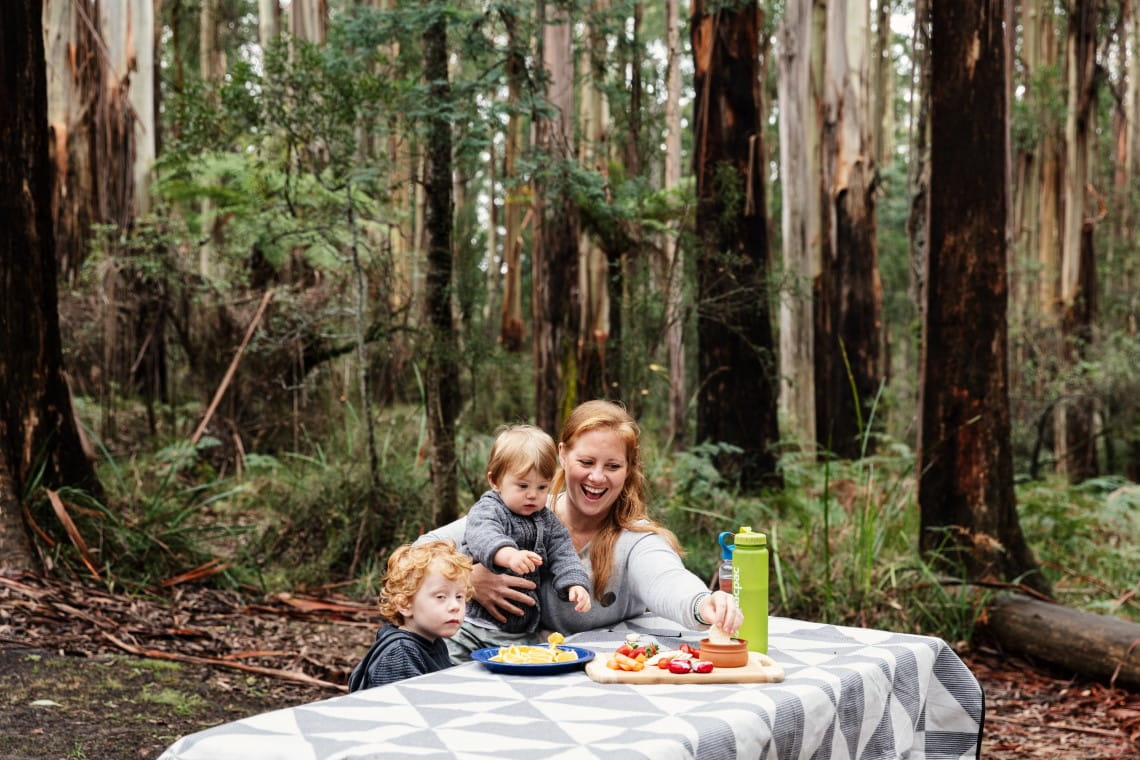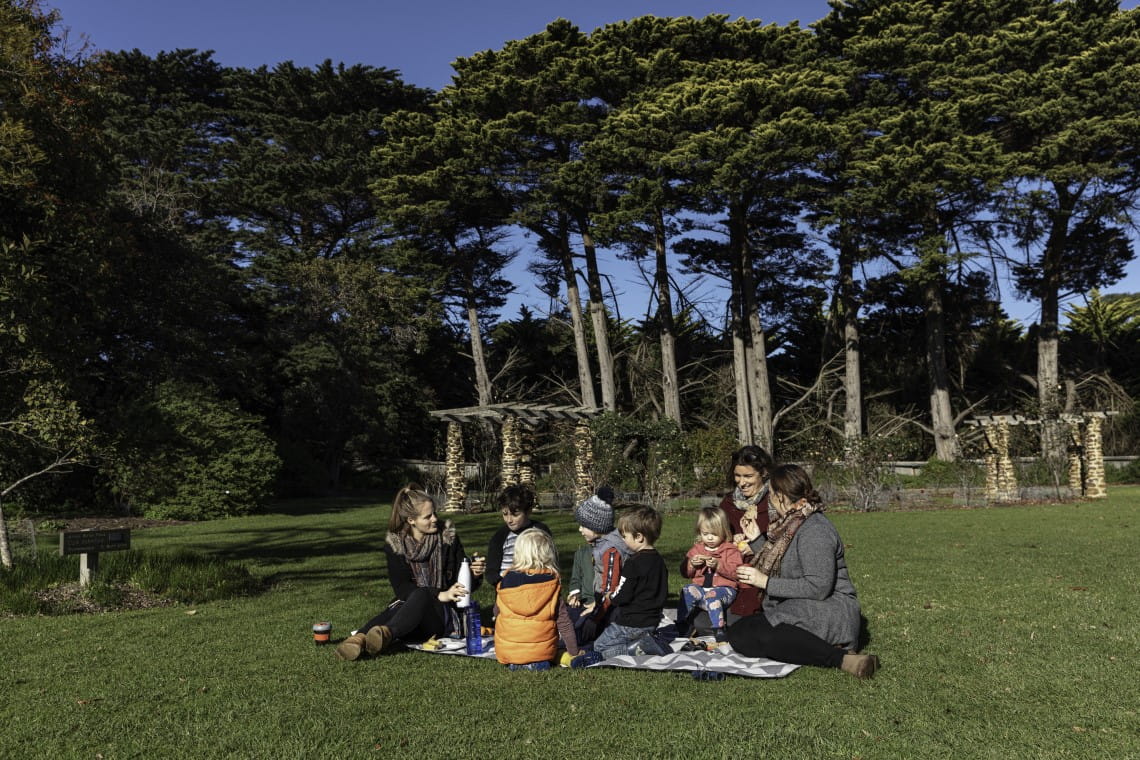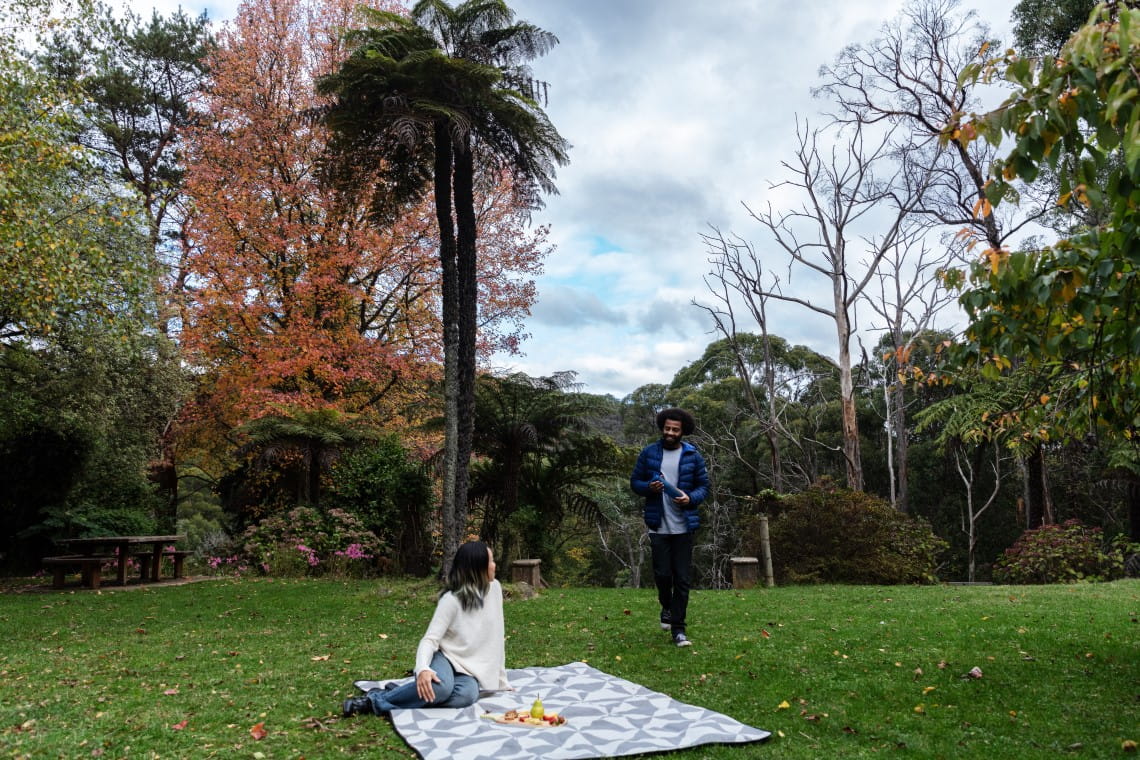Top tips for pristine and plastic-free parks
One of life’s greatest pleasures is the blissful joy of a picnic in the great outdoors with friends and family.
But while we are out appreciating nature, nature may not be appreciating us.
Let’s do away with plastic plates, forks, cups, and containers. You can picnic for the planet in a big way with just a little planning… Here are our top tips on how to green your next picnic.
1. Planning: destination and transport
A good starting point is to decide where to picnic. With so many options across Victoria, look through the Parks Victoria website for inspiration.
- Once you have selected your perfect picnic location, check the park page on our website for need-to-know information including change of park conditions and the availability of facilities like barbeques and toilets.
- Green your transport by carpooling or using a journey planner to consider alternate transportation options including public transport, cycling, or walking.
- Bonus tip: Visit the park page to find information about the Traditional Owners of your destination to enrich your experience and understanding.
2. Pick your menu carefully
If you are picnicking with a group, coordinate your dishes. By planning a menu together, you can avoid accidentally bringing the same food or drink.
- Select easy to share foods. Handheld finger foods like sandwiches, sushi, and pastries are perfect for picnics.
- Design a green menu by selecting in-season food and ingredients. In-season foods require less transport, reducing both food miles and emissions.
- Choose unpackaged foods such as apples, oranges, bananas, pears, and plums.

3. Shopping
Each year, Victorian households throw away 250,000 tonnes of edible food – that’s enough to fill Melbourne’s Eureka Tower! The best way to reduce food waste is to avoid it in the first place.
- Check what food you have at home before heading to the shops. You may already have everything you need.
- If you need to pick up supplies, make a shopping list to avoid unnecessary purchases.
- Take reusable shopping bags and bring reusable produce bags when shopping for fruit, vegetables, and bakery items.
- Select items with minimal plastic where possible.
- Consider making your own condiments. Not only does this cut down on plastic consumption, they taste better and can help use up extra produce in your fridge.
It is a reality that some items only come in plastic packaging. If this is the case, make sure you look at the recycling symbols and dispose of your waste effectively.
4. Quench your thirst
- Pack a refillable water bottle.
- Bring a thermos and pack compostable tea bags. Many tea bags are actually lined in plastic!
- If there is a cafe nearby, make sure you take a KeepCup or mug.
- Bring a reusable straw.
- For other beverages, select drinks with glass or aluminium packaging.
5. Packing your picnic
- Start with a picnic basket, esky, or reusable shopping bags. If you are hiking to the picnic site, a sturdy backpack will do the trick.
- Bring reusable picnic plates and cups.
- Roll your everyday silverware into a tea towel or cloth napkins.
- Bring a blanket – if you don’t have one, an old sheet or tablecloth works just as well.
- Avoid plastic wrap and switch to beeswax wraps, mason jars, fruit and veggie bags, or biscuit tins to pack your food.
- Bring spare containers to take home leftover food and compostable food waste.
6. Setting up and feasting
- Remember to set up your picnic in a designated picnic area away from any precious plants or wildlife. Human food can make animals extremely sick and alter their natural behaviour.
- Remember some parks do not have bins. Bins not only attract feral pests to food scraps, but can also overflow with litter, causing rubbish to impact on the environment and cause serious harm to wildlife.
- If you witness rubbish dumping or littering in a park call Parks Victoria on 13 1963 or the EPA Litter line: 1300 372 842.

7. Packing up and recycling
- Remember to leave with no trace.
- Food thrown into your general rubbish bin ends up in landfill and breaks down in a way that creates greenhouse gases.
- If you have leftover food, take it home for another meal.
- Take your food waste home in a reusable container and dispose of it in your green waste bin or compost to reduce emissions.
- Wash and reuse your containers and napkins.
- If you used aluminium foil, make sure it is large enough to recycle by squishing it into the size of a tennis ball.
8. Spreading the word
- By hosting a zero-waste picnic, you are leading by example. Now, encourage your friends to make the same switch!
- Encourage your friends to go zero-waste at your next picnic.








